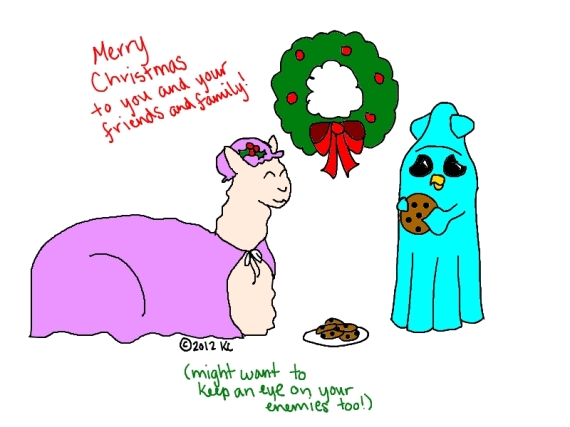Well, Squiders, here we are at the end of our re-read. I hope you’ve had a good time of it, and stay tuned for our next one, to be announced some time in the next few weeks. And it you hadn’t read the Time Quintet yet, I hope you enjoyed the books.
To be perfectly honest, I thought there were only four books in the series, but I did a Google search in the process of posting about the re-read and lo! there were five books.
I admit I don’t read much L’Engle outside of these books. I read A Ring of Endless Light last year and I didn’t really like it, so I think it’s the combination of science and religion that I like. She does it somewhat masterfully, really. To paraphrase something Bishop Colubra says in this book, it doesn’t matter if you believe in God, but he does, and that’s okay. Characters are religious or not, nephilim and cherubim exist, “El” talks to Noah, but none of it is in your face.
All right, onto An Acceptable Time. Maybe it’s just me, but I feel like characterization isn’t really one of L’Engle’s strong points. All of her main and peripheral characters are essentially good-hearted people who do the right thing, whether or not they are a native person from three thousand years ago or a modern person. I’m not sure, if you took Polly out and replaced her with Meg, that you’d see any real difference in the story.
Zachary’s an ass. He was one in A Ring of Endless Light too.
Let’s see. It’s nice to see some continuity between this and Planet, with the People of the Wind, though there is no mention of dark planets or IT or anything of that nature. (And now that we’ve gotten all the way through without returning to IT at all, I’m a little disappointed. Maybe if she’d tied IT to the events in A Wind in the Door a bit, I’d be less annoyed.) And the part in the past, if you ignore the ability of all the characters to learn languages rather quickly, is interesting.
I did have a bit of an issue with the “modern” day part, however — specifically how disbelieving the Murrys are about the whole idea of time-travel. They were there for A Wrinkle in Time and A Wind in the Door. They know things like this happen, even if they’re completely unaware of the events of Many Waters and A Swiftly Tilting Planet. I’m not sure why so many characters are suddenly so closed-minded.
(Also, did something happen to Charles Wallace? Polly mentions that he “would have liked” the changes to his bedroom early in the book, and then he’s not mentioned again, hardly, though Meg, Calvin, Sandy, and Dennys are.)
All right, onto the discussion questions. As always, feel free to ask your own in the comments.
1. Madeleine L’Engle is sometimes accused of being culturally insensitive when it comes to the People of the Wind. Would you say that this is true when it comes to this book?
2. Polly is staying with her grandparents to be homeschooled, but Charles Wallace and Meg were not allowed to be homeschooled earlier in the series. Why do you think attitudes towards this have changed throughout the series?
3. While most of the “modern” day characters have been seen in other books, why do you think Madeleine L’Engle chose to include the character of Bishop Colubra?
4. Time travel throughout the series is rarely set up so that the time traveler returns to his/her own time without some noticeable passage of time (the only exception being Sandy and Dennys in Many Waters). Why is it important for time to pass in both times?
5. Many of the characters in the past have nature based names such as Cub, Eagle Woman, Winter Frost, Dark Swallow, yet the main characters do not. Why the difference in the naming scheme?
